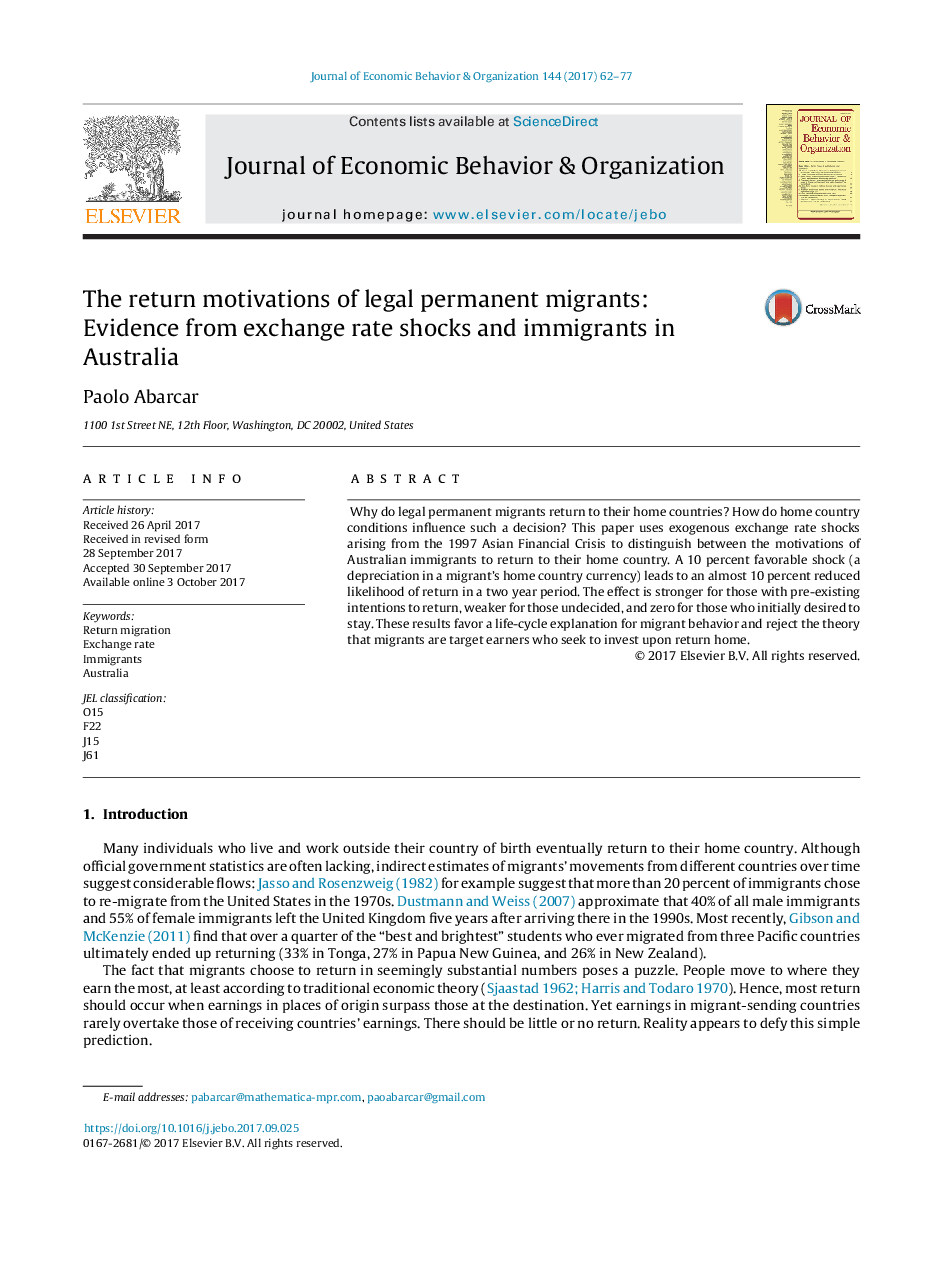| Article ID | Journal | Published Year | Pages | File Type |
|---|---|---|---|---|
| 5034379 | Journal of Economic Behavior & Organization | 2017 | 16 Pages |
Abstract
Why do legal permanent migrants return to their home countries? How do home country conditions influence such a decision? This paper uses exogenous exchange rate shocks arising from the 1997 Asian Financial Crisis to distinguish between the motivations of Australian immigrants to return to their home country. A 10 percent favorable shock (a depreciation in a migrant's home country currency) leads to an almost 10 percent reduced likelihood of return in a two year period. The effect is stronger for those with pre-existing intentions to return, weaker for those undecided, and zero for those who initially desired to stay. These results favor a life-cycle explanation for migrant behavior and reject the theory that migrants are target earners who seek to invest upon return home.
Related Topics
Social Sciences and Humanities
Economics, Econometrics and Finance
Economics and Econometrics
Authors
Paolo Abarcar,
